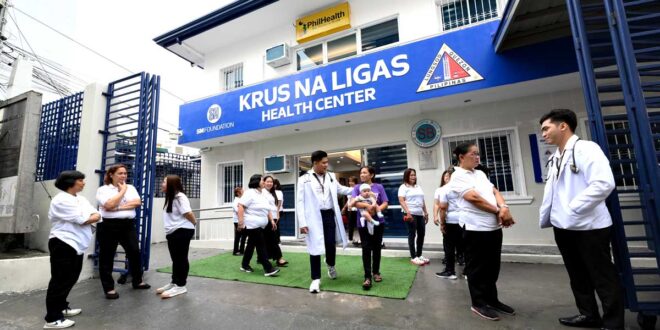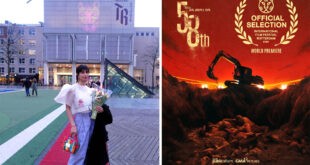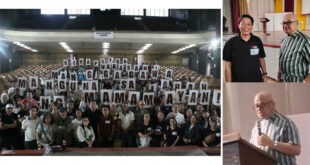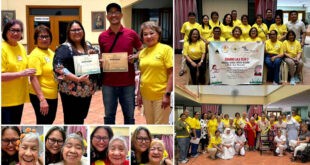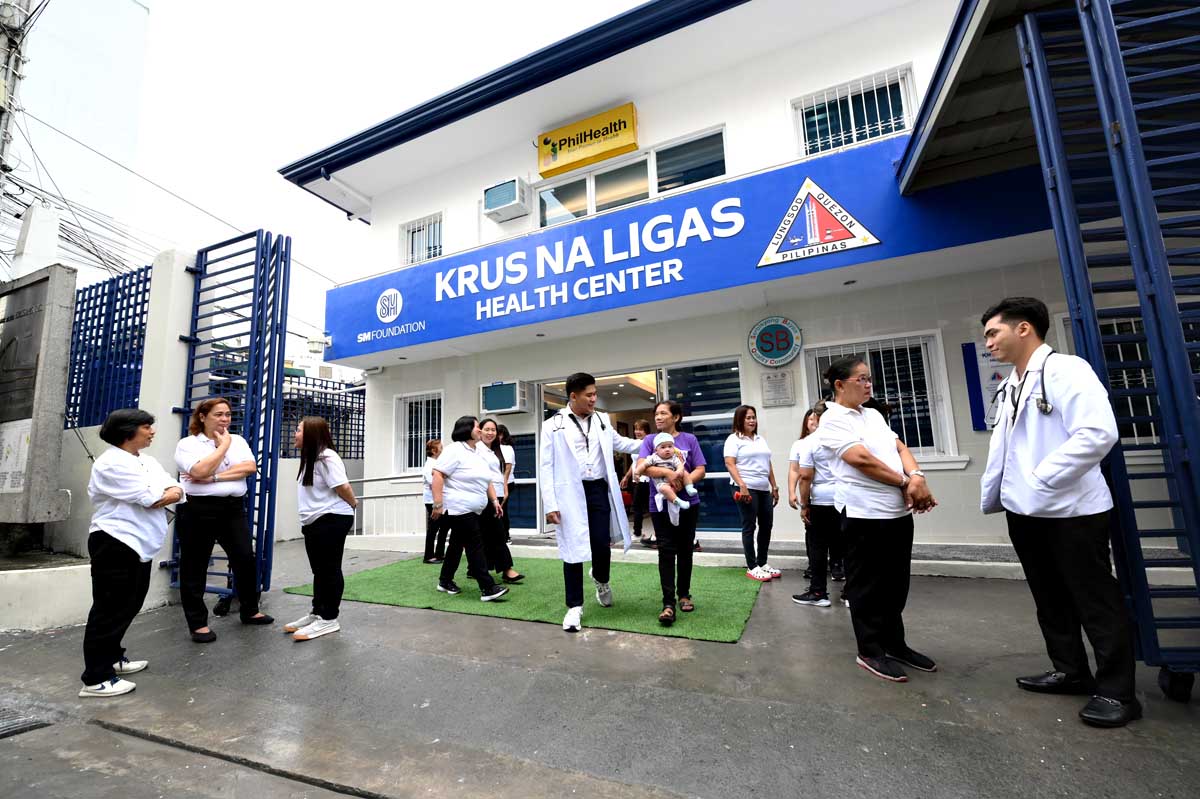
For most Filipinos, a visit to the doctor is often the last option.
Those experiencing symptoms would opt for home treatment until, in many cases, the illness had already progressed and would require more complicated treatment.
This often leads to a multitude of problems, including higher costs and additional strain on the health care systems.
Dr. Mike Lorenz Panaligan, medical officer of the Krus na Ligas (KNL) Health Center in Quezon City, is all too familiar with these health concerns.
When he assumed the role earlier this year, he knew he would be facing a difficult task ahead.
“It was really a challenge trying to figure out how to make our lives easier,” Panaligan said.
Like many other public health care facilities in the country, the KNL Health Center – which caters to over 73,000 residents of three barangays in the city – has been showing signs of disrepair.
Patients, which can reach up to 100 daily, either have to wait in line outside the facility or stay in a dark and often crammed waiting area along with others who require treatment. Medical supplies, due to lack of enough storage, can be found in every available space of the two-storey facility.
Panaligan says he and the rest of his staff are doing their best to manage the situation.
But they knew that it was far from the ideal.
Its impact, he says, goes beyond those who are seeking the services of the health center.
For many in the community, a dilapidated health center would not inspire them to prioritize their own well-being.
This is expected to change in the coming months.
A dependable facility
On Dec. 11, the SM Foundation, through its Health and Medical Programs, formally turned over the renovated and refurbished KNL Health Center to the Local Government of Quezon City.
The health center, which underwent 13 weeks of comprehensive overhaul, has been transformed into a facility that is likened to private clinics.
New medical tools and equipment have been provided, including a minor operating room that will allow the health center to upgrade its status into a primary health care facility.
An updated layout also paved the way for better spaces both for the workers and the clients, including a dedicated breastfeeding area, a lounge for the elderly and pregnant patients, a children’s play area, pharmacy, dental clinic, and a Teen Hub to provide a safe space for adolescents requiring guidance and counselling.
An emergency shower and eyewash station were also installed to provide on-the-spot decontamination on patients during emergencies.
Environment-friendly and sustainable solutions have also been incorporated in the facility, including a rainwater catchment system, energy-efficient LED lighting fixtures, and air-cleaning paints.
SM Foundation also equipped the center with SM DigiKonsulta, which Panaligan said will support their digitization efforts and the planned roll out of a teleconsult program.
Healthy community
Dr. Marizel Wong, health officer of the Quezon City’s fourth district, says the refurbished KNL Health Center will have far-reaching impact to the community it serves.
Wong notes that not only will it improve the overall experience of the facility’s regular clients, but it will also encourage others to visit the health center and learn about the different programs and services.
“If you improve your facility, of course the people will be enticed to go in. The health-seeking behavior will improve,” she said, referring to actions of a person to ensure their health and well-being.
“Mas magiging enticing sa kanila na pumunta kasi kamukha na siya ng isang private clinic na nakikita natin sa malls and other establishments,” Panaligan added.
This, he says, contributes to their overall goal of providing a “very holistic approach when it comes to the health of our residents here.”
The refurbished facility, according to Wong, will also benefit the almost two dozen health workers assigned at the facility.
In addition to having a better work environment, which in turn is expected to further improve services to the community, the upgrades provided to the health center will give the personnel an opportunity to improve their craft.
Panaligan, for instance, is excited to utilize their new minor operating room.
“It would decongest our hospitals. Yung simple cuts, simple circumcisions, kailangan pa pumila ng mga pasyente sa public hospital… (Now), we can give them the services for free,” he said.
Private sector support
Quezon City Mayor Joy Belmonte, who attended the turnover, underscored the importance of private sector support to local government initiatives such as the upgrade of health centers.
“The city government has been undertaking these renovations and upgrading, but we have 66 in Quezon City, so we have to do it in phases, hindi pwedeng sabay sabay,” she began.
“We’ve only finished 50 percent. Itong mga ganitong initiatives ng private sector para tulungan tayo sa mga pinaka-basic needs ng ating mga mamamayan are really very important to us,” she added.
The KNL Health Center is the 214th wellness center upgraded by SM Foundation. In addition to the refurbishment, the foundation also committed to cover future repairs that the facility may require.
Following the improvements made by SM Foundation, the two-storey Krus na Ligas (KNL) health center is now equipped to provide enhanced patient care. It can accommodate up to 100 patients daily, who no longer need to wait outside or endure a dark, overcrowded waiting area while seeking treatment.
The updated layout provides improved spaces for workers and clients, including a breastfeeding area, lounge for elderly and pregnant patients, children’s play area, pharmacy, dental clinic, and a Teen Hub for adolescent guidance and counseling.
In addition to having a better work environment, which in turn is expected to further improve services to the community, health workers of KNL health center says the upgrades provided to the health center will give the personnel an opportunity to improve their craft.
KNL medical officer Dr. Mike Lorenz Panaligan said that the improved community healthcare facility will improve the public’s health-seeking behavior, enabling them to prioritize their health and wellness.
 HATAW! D'yaryo ng Bayan hatawtabloid.com
HATAW! D'yaryo ng Bayan hatawtabloid.com

